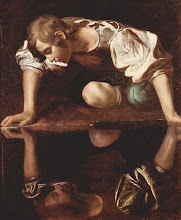 In his "History of the Kings of Britain", Geoffrey of Monmouth briefly tells the story of King Bladud, the founder of Bath:
In his "History of the Kings of Britain", Geoffrey of Monmouth briefly tells the story of King Bladud, the founder of Bath:Next succeeded Bladud his son, in whose hands the kingdom remained for twenty years. He builded the city of Kaerbadon, that is now called Bath, and fashioned hot baths therein, meet for the needs of men, the which he placed under the guardianship of the deity Minerva, in whose temple he set fires that could not be quenched, that never turned into ashes, but as they began to fail became as it were round balls of stone. At that time did Elijah pray that it might not rain upon the earth, and it rained not for the space of three years and six months. Bladud was a right cunning craftsman, and did teach nigromancy throughout the realm of Britain, nor did he stint of his subtle sleights until he had fashioned him wings and tried to go upon the top of the air, when he fell upon the temple of Apollo in the city of Trinovantum, and was dashed into many pieces.
(public domain 1904 translation by Sebastian Evans from sacred-texts.com)
Geoffrey's version is discussed on this Bath site. Charles Dickens tells a later version of the story in Chapter XXXVI of The Pickwick Papers, and then lets us in on the secret of what really happened.
The illustration at the top shows a statue of King Bladud in the King's Bath at Bath, and Laurence Tindall explains the conservation work he did on it in 1982 (photo by Andrew Dunn from wikicommons under a creative commons licence).
The Royal Academy has Benjamin West's 1807 picture Bladud in Exile.





No comments:
Post a Comment